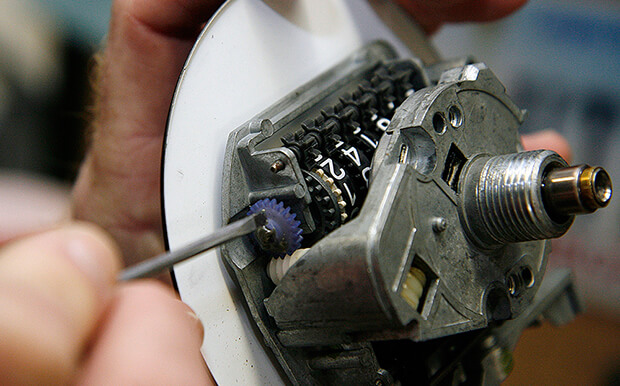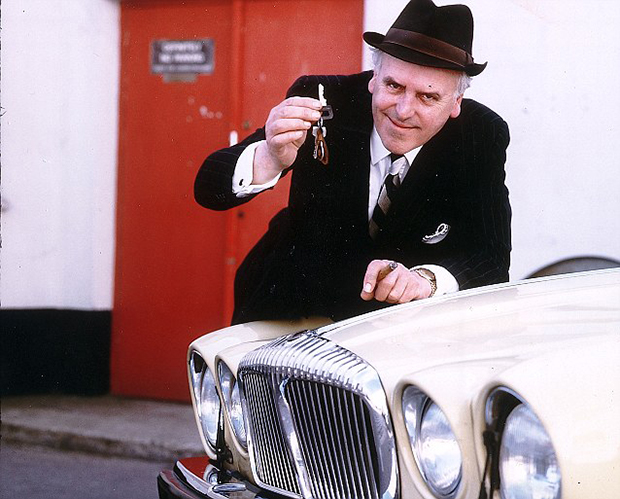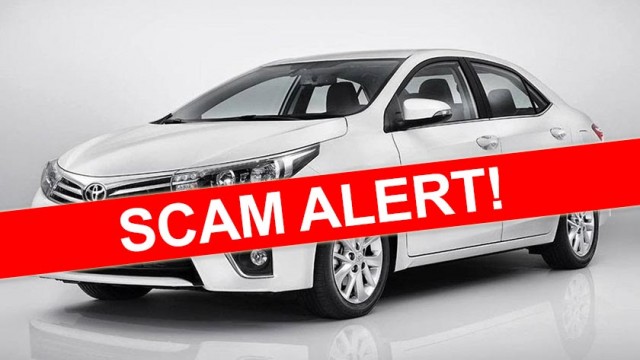Crack down on rogue Irish dealers 'clocking' cars

Crackdown on rogue Irish dealers 'clocking' cars
The Competition and Consumer Protection Commission (CCPC) has said that they are preparing to ramp up raids on shady dealers who are illegally ‘clocking’ car odometers.It is planned to have widespread swoops on rogue car dealers and unscrupulous sellers for illegal clocking activities.
Special teams of officers will target specific premises and carry out inspections of stock.
This comes in the amid the deepening concern over the level of criminality within some areas of the car sales sector and in particular, the practice of ‘clocking'.
The investigation by the CCPC is based on their own suspicions and also tip-offs on their 1890 432 432 helpline. There is added urgency as there has been a spike in calls in recent weeks. They are getting around 4,500 calls a year about cars on the helpline number.

The AA have also noticed a rise in clocked vehicles as part of its Car Inspections service, especially discrepancies in UK cars imported into Ireland appear to be on the rise.
The CCPC is urging anyone who feels they have been victims of a scam or sold a car under false pretences or if they even suspect that the car is clocked, to use their helpline.
MyVehicle.ie would say that it is imperative to always run a car history check on every vehicle they plan to look at and have that report in hand when visiting a dealer.
CCPC officials are saying that the 'surprise swoops' on dodgy dealers will be extensive and detailed. When officers 'go in' they will have an extensive list of facts and figures on the specific cars that the trader has sold or has for sale.
As part of their investigations they will check odometers, chassis, previous owners etc. In fact, they have already examined as many as 60 cars at one dealership alone.
"We are trying to reduce the problem for consumers. We want to give people a degree of confidence," I was told.
"We also want to get it across to traders that they are going to be checked out and that they are being watched."
The CCPC are primed and ready for action on a large scale top tackle the problem of criminal car dealers. It will be on a scale broader and deeper than anything they have done before since their establishment in 2014.
Motorists who suspect they have been scammed are being asked to go back to the garage or dealer where they bought the car and look for certain information about the car and or the deal.

Here are some key steps to take in order to protect yourself when you are thinking of buying a used car and the information you need in your correspondence with the Competition and Consumer Protection Commission.
Write down:
- Make and model
- Seller's name
- Seller's address
- Seller's phone number (landline)
- Car's registration
- Where you saw the advert (publication/website)
- Date of transaction
Questions to ask any car seller:
- Has the car ever been crashed?
- Has any bodywork been done to the vehicle (by you or by others)?
- Has any major mechanical work been done on the vehicle (by you or by others)?
- What is the correct mileage for this vehicle?
- How many previous owners has the vehicle had?
- Is there any outstanding finance on the vehicle?
- When was the last full service carried out on the vehicle?
- Has the car been imported?
- Have all relevant charges been paid (VAT, VRT etc)?
If buying from a dealer ask the following:
- Are you a member of any trade association? (Yes/No/Details)
- How long is the guarantee period on the vehicle?
- What does the guarantee cover? (parts, labour, etc)
- Can you arrange finance for this vehicle?
- If so, please list your Credit Intermediary Authorisation number.
Finally:
- Get the seller to sign the document
- Get their name in block capitals
- And ask them to write on whose behalf they are signing the document and making the declarations
- Get the document authenticated by the garage stamp

When you make a complaint to the CCPC it will be referred to the criminal department and a summary of the car's details, traders contact information and other relevant details of the allegation will be drawn up.
The Commission said that they will get back to a complainant within three working days so they are promising to take all allegations very seriously and deal with them in a very expeditious manner.
Problems may only come to light when the car starts to give trouble which could be after 12 or even 18 months after the purchase. The CCPC is also assuring the public that they can work on cases dating three back years.
The success of the investigations and any subsequent prosecutions rest on the evidence supplied by the customer and their participation in the legal process by giving witness statements.
In reality though, most people tend to just want their money back and not pursue legal proceedings and a visit to court. It has also been noted that some traders can be quite intimidating when a buyer goes back to them so it is best to well prepared when dealing with a potential scam artist.

The commission has promised that it will have the backing of the State and it’s agencies such as the Revenue Commissioners, An Garda Síochána, and the Department of Transport which can help in identifying ownership of premises and other specific identifying information. They also have in-house lawyers who will regularly review your case and keep you up to date at all times.
It has been noticed that here have not been too many cases of dealer criminality around the country because of insufficient evidence or because the trader refunds the money and the consumer just lets it go.
This can certainly happen if the buyer informs the trader that the CCPC is involved. Its at this stage that the sellers tend to refund the customer. What we should remember as consumers, that even if we receive a refund, an offence has still been committed and therefore the dealer should be held responsible.
In the event that no case proceeds, the CCPC can still serve notice on the trader by way of a Compliance Notice or a legal Undertaking which commits the seller to complying with all aspects of the law and that includes what they say in their advertisements etc.
"Tip-offs are important. These people are criminals. We are aware that some involved in car sales refund the consumer but we know they are engaged in criminal activity,"
Serious criminals could be running some of these 'outlets' so officers will also check for money laundering.
The commission is also seeking the establishment of a national database on cars that the public can easily access, possibly tied-in with the UK database for the identification of imports and crashed cars.
A final piece of advice. Before even thinking of buying a used car the first thing on our minds should be to check the car’s history with MyVehicle.ie

Author

Justin Kavanagh
Justin Kavanagh is a recognised leader
in automotive intelligence and vehicle
data supply to the entire motor industry.
He has almost 20 years experience in
building systems from the ground up.
As the Managing Director of Vehicle
Management System, he understands the
need and importance of trustworthy and
reliable vehicle history and advice to
both the trade and the public.
Follow me on LinkedIn